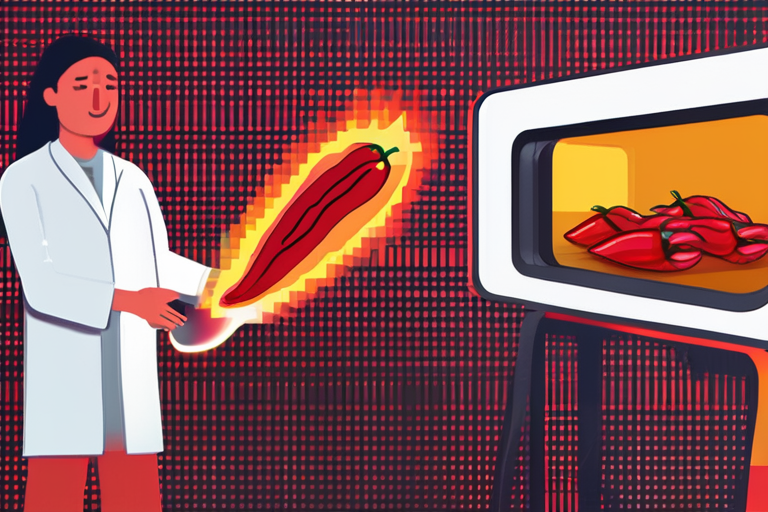Researchers at the East China University of Science and Technology in Shanghai have developed a gel-based artificial tongue that can accurately determine the spiciness of various foods without human discomfort. The device, described in a paper published in ACS Sensors, uses electronic sensors to detect the capsaicin content in foods, which is responsible for their heat levels. This innovation has the potential to revolutionize the food industry by providing a precise and non-invasive method for measuring spice levels.
According to co-author Jing Hu, a chemical engineer at the East China University of Science and Technology, the artificial tongue's solution was inspired by the spicy-neutralizing effect of milk. Milk proteins that affect our perception of spiciness relieve the burn of a spicy dish, and the researchers used this concept to develop a device that can detect and measure the spiciness of foods. "Our goal was to create a device that could accurately measure spice levels as precisely as possible, which is especially important for quality control in food," Hu explained.
The artificial tongue is not a new concept, but previous devices have focused on detecting general taste profiles rather than specific heat levels. This new device is designed to address the need for a precise and non-invasive method for measuring spice levels, which is crucial for food manufacturers and quality control specialists. "The ability to accurately measure spice levels will enable food manufacturers to produce products with consistent heat levels, which is essential for maintaining customer satisfaction and loyalty," said Hu.
The development of the artificial tongue has significant implications for the food industry, particularly in the production of spicy foods. Currently, human tasters are often used to determine the heat levels of foods, which can be time-consuming and subjective. The artificial tongue offers a more efficient and accurate method for measuring spice levels, reducing the need for human tasters and minimizing the risk of human discomfort.
The researchers' solution has also sparked interest in the scientific community, with experts praising the innovation for its potential to revolutionize the food industry. "This is a significant breakthrough in the field of food science, and it has the potential to transform the way we produce and consume spicy foods," said Dr. Maria Rodriguez, a food scientist at the University of California, Berkeley.
The artificial tongue is currently in the experimental phase, and the researchers are working to refine the device and make it more commercially viable. While the device has shown promising results in laboratory tests, further research is needed to ensure its accuracy and reliability in real-world applications. As the researchers continue to develop and refine the artificial tongue, it is likely to have a significant impact on the food industry and the way we consume spicy foods.



























Share & Engage Share
Share this article